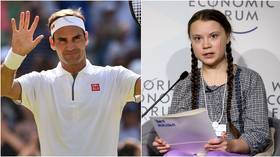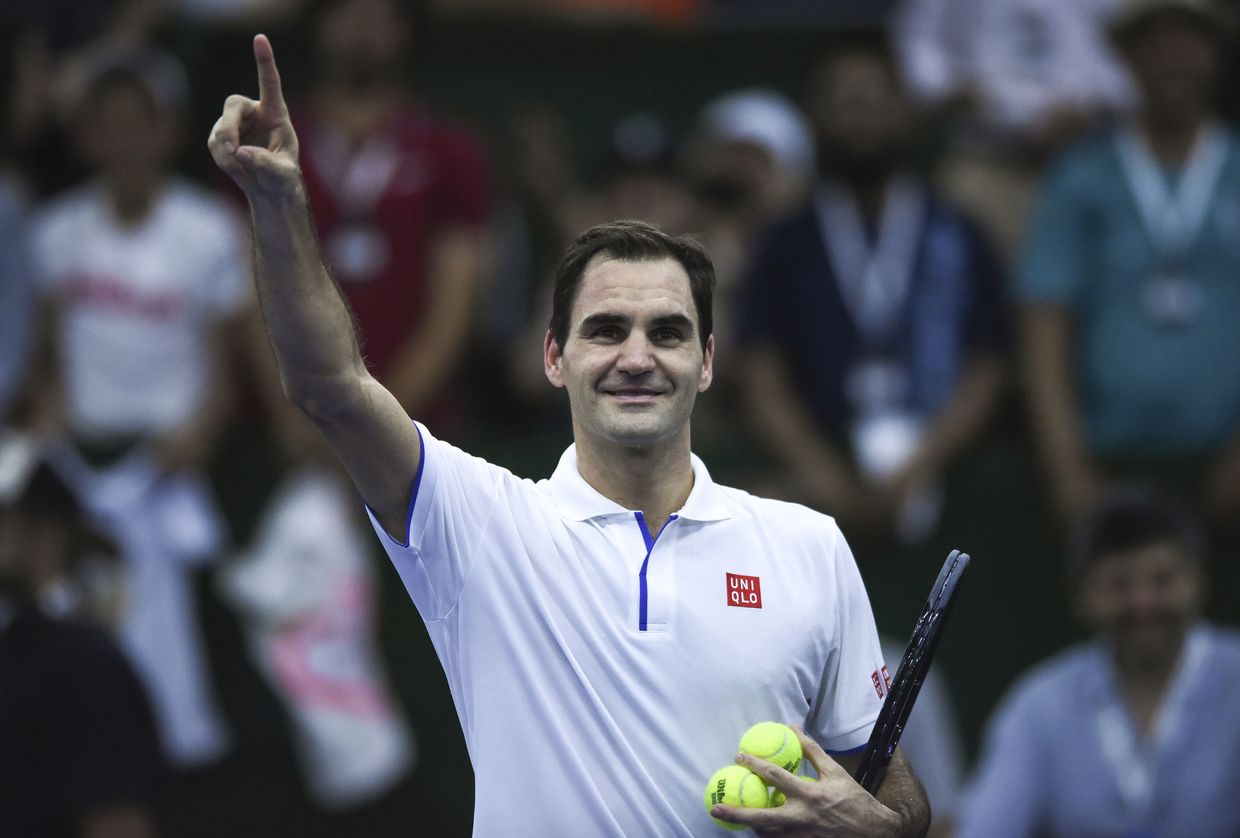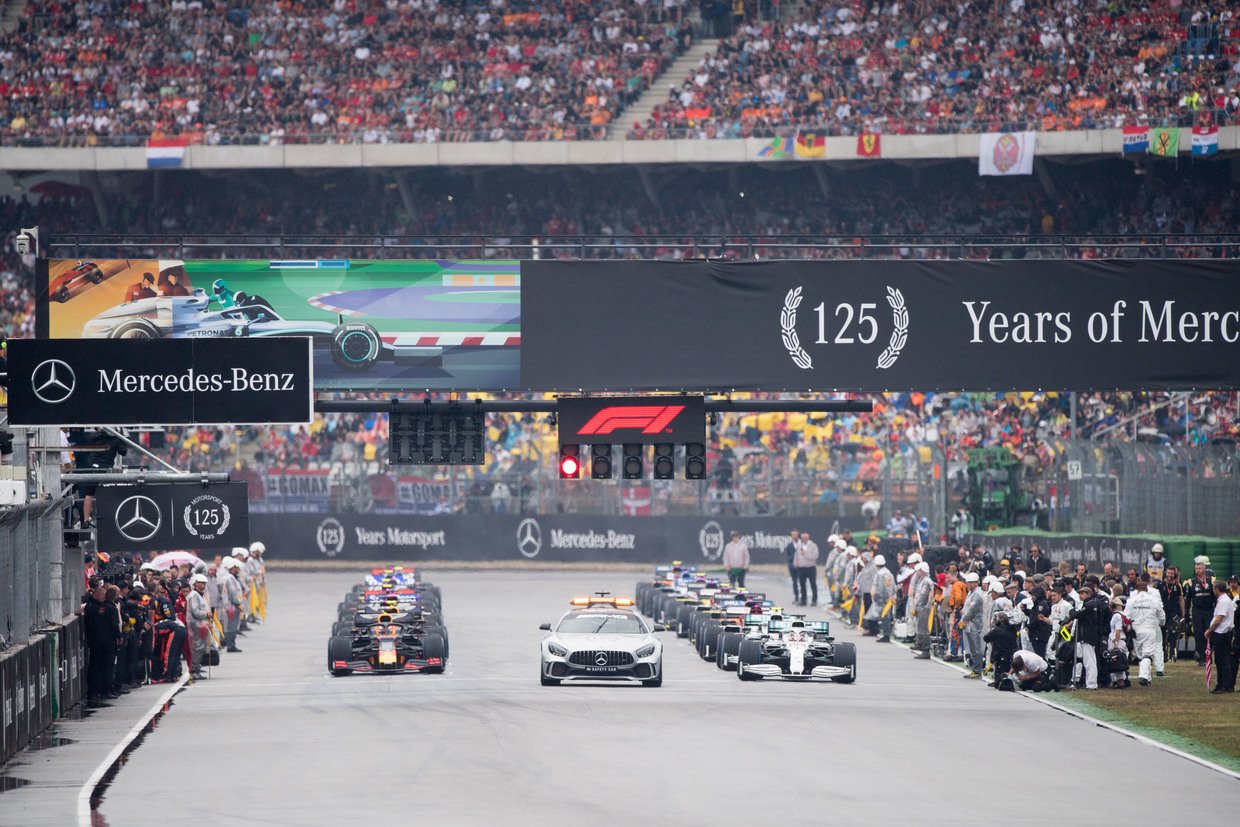After taking aim at Federer, who's next for Greta's climate shame brigade?

Roger Federer has a reputation as a sporting saint but after he was targeted by climate change activists, his fellow sports stars – no matter how wholesome – will be sweating over similar attacks.
Swiss tennis icon Federer is used to defending on-court barrages but was forced to see off volleys of the verbal sort recently when he was criticized by hardcore environmentalists for his deal with sponsors Credit Suisse.
The climate change clan are unhappy with the 38-year-old’s association with the Swiss banking giant, which is a heavy investor in the fossil fuel industry.
Those links came into the firing line again when a dozen activists appeared in court after refusing to pay a fine for playing tennis in braches of Credit Suisse back in 2018, in what was a swipe at Federer and his corporate sponsors.
The hashtag #RogerWakeUpNow trended on Twitter, gaining some serious traction when Swedish teenage climate change doyenne Greta Thunberg shared the message for the cause.
Since 2016 @CreditSuisse has provided $57 BILLION to companies looking for new fossil fuel deposits - something that is utterly incompatible with #ClimateAction@RogerFederer do you endorse this? #RogerWakeUpNowpic.twitter.com/ED1fIvb4Cr
— 350.org Europe (@350Europe) January 8, 2020
As he so often does on the court, Federer (or at least his PR team) responded in slick, decisive fashion, issuing a statement saying that he “take[s] the impacts and threat of climate change very seriously.”
“As the father of four young children and a fervent supporter of universal education, I have a great deal of respect and admiration for the youth climate movement, and I am grateful to young climate activists for pushing us all to examine our behaviours and act on innovative solutions," the Swiss ace dutifully added.
“We owe it to them and ourselves to listen. I appreciate reminders of my responsibility as a private individual, as an athlete and as an entrepreneur, and I’m committed to using this privileged position to dialogue on important issues with my sponsors.”
In other words, thanks for the heads up, but I’ve already netted the cash.

But if a sporting icon such as Federer – a legend with 20 Grand Slams to his name, and a man considered as pristine as his lily-white Wimbledon attire – is not safe from the climate change hecklers, then who else should be fearful?
Keeping just within the tennis tramlines, the shame-hungry activists could just as easily point the finger at women’s great Serena Williams.

After all, Williams also has sponsorship arrangements with a financial giant which invests in the fossil fuel industry: in her case JP Morgan Chase, which according to some estimates has lent almost $200 billion to gas and oil companies in recent years – dwarfing even the amount invested by Credit Suisse.
Download the song in my @Chase commercial for free for a ltd time & quantity: http://t.co/chbOfAZsVi#MasterTheOpenpic.twitter.com/Cph1Jp4GGm
— Serena Williams (@serenawilliams) September 1, 2015
Williams, 38, would seem to be a tougher target as a self-professed social justice crusader, a woke warrior, a mother no less – but would that spare her the ire of the environmental brigade?
The same could be said of countless other stars pocketing sponsorship deals across dozens of sports.
But if climate change activists are naming and shaming individual athletes, they could just as easily train their fire on whole events.
Taking just one example, the aforementioned JP Morgan Chase also happen to be official partners of the US Open. Does that make the hundreds of players who compete at the tournament guilty by association?

There are myriad other events that could feasibly face public shaming from the climate change crusaders, based on the sponsorship that actually helps make these events the popular spectacles they are.
Cancel culture could metaphorically be applied to individuals, but literally as far as events go, should they be shamed into dropping sponsors.
Moving up a level, whole sports will likely have the heat turned up on them from global warming protesters, no matter how much orgnizers make proclamations of moves toward reducing carbon emissions.
Take motor racing and Formula 1, which would logically seem a sweet target. F1 chiefs have announced ambitions aims to somehow make the sport carbon neutral by 2030.
As gas-guzzling drivers jet around the world, with armies of technical and support staff in tow, all in giant trucks and other assorted transport, they will at least have a clear conscience in the face of the slings and arrows from campaigners – that's assuming the sport hasn't been shamed out of existence by the end of the decade.

The way we are headed, athletes, fans, and any and all events must be completely beyond reproach; if they don't fit the climate crew's exacting standards, they shouldn't be on the sporting calendar; if it's sponsored by anyone with a vaguely distasteful whiff to the virtue-signaling social media warriors, cancel it.
No more athletes choosing their sponsors – the climate change clan will do that for them, handing them an ever-dwindling approved list. And while they're at it, they might just try to dictate which sports you watch, as well as when, where and how they happen.
If all this seems far-fetched, then so did a spat between the world's most revered tennis player and a Swedish teen climate change activist, at least until a couple of days ago.
By Liam Tyler














